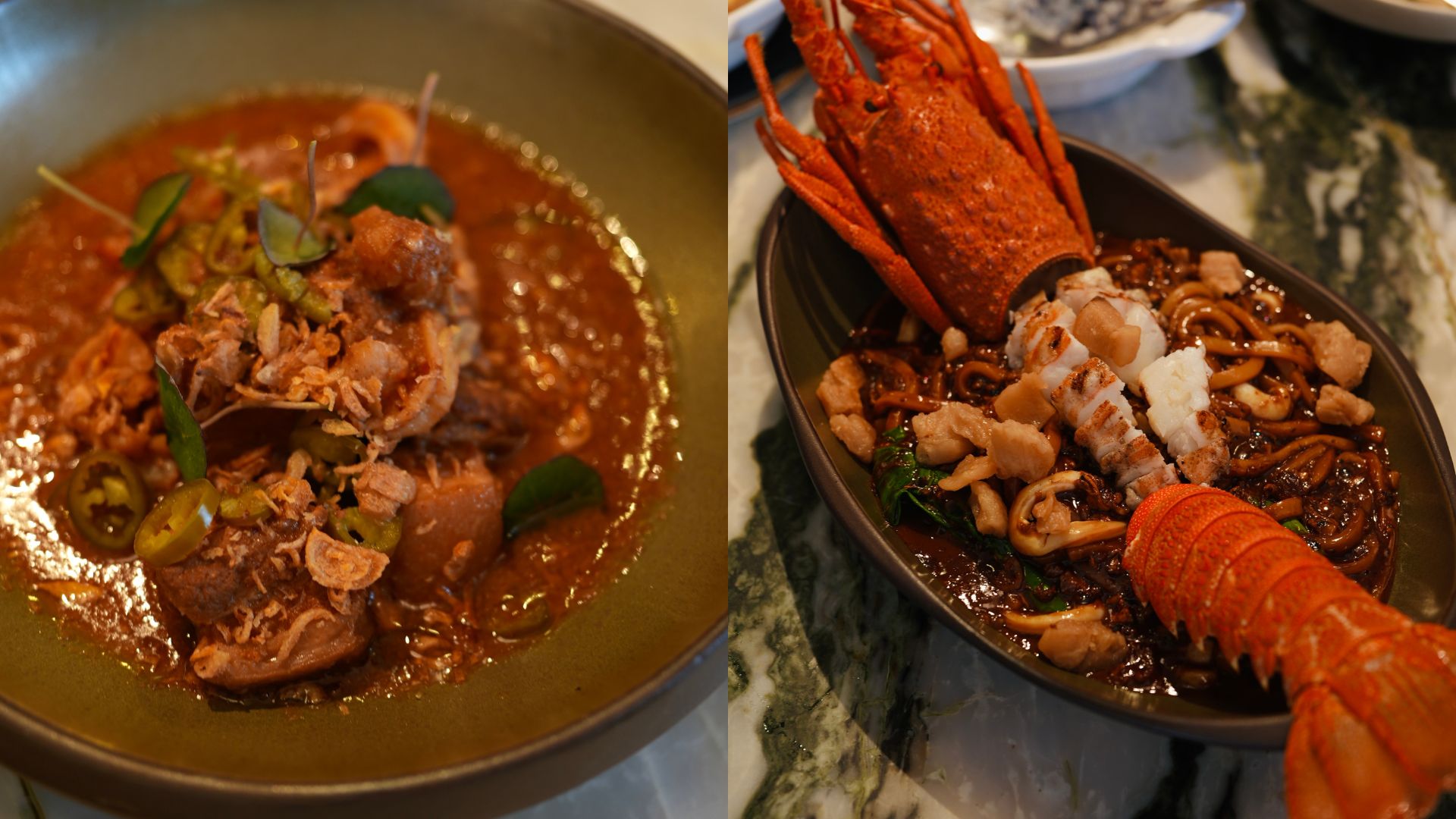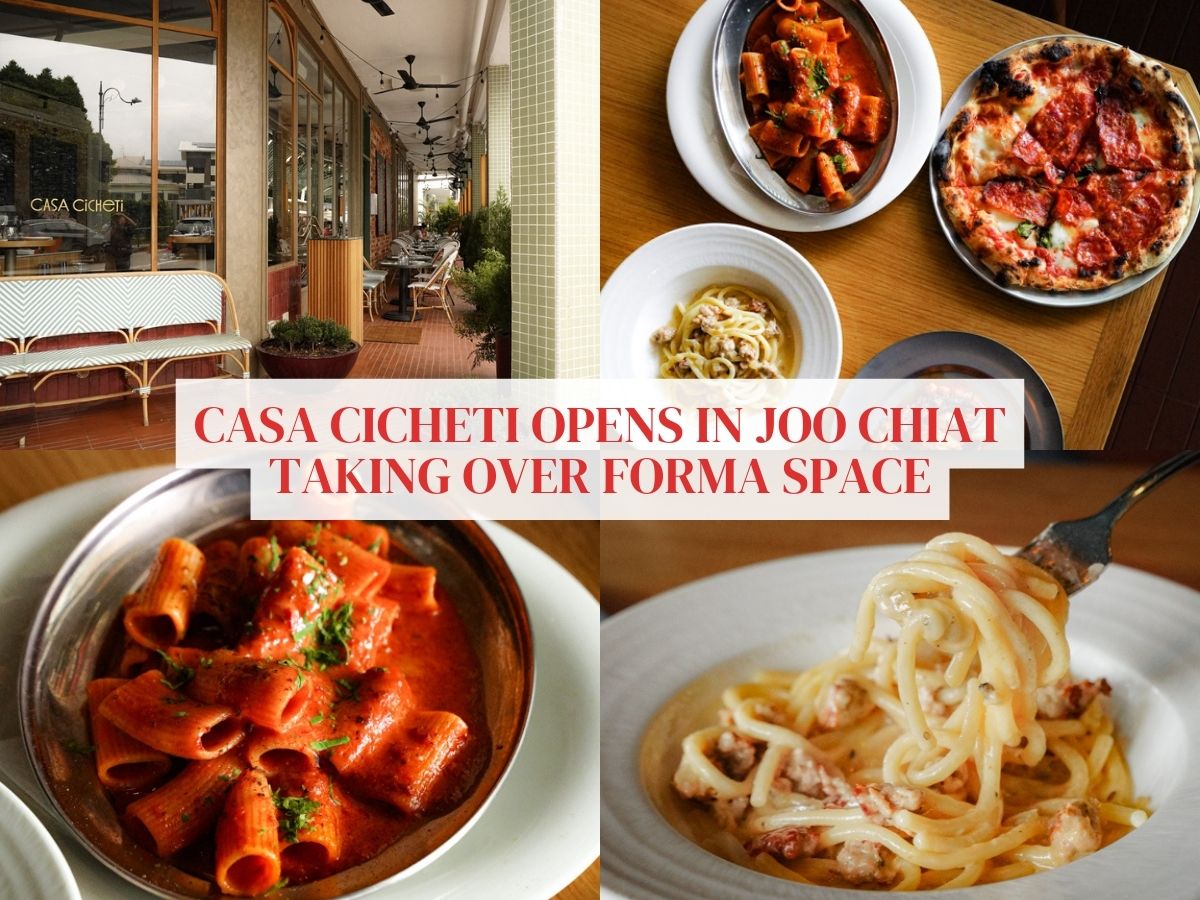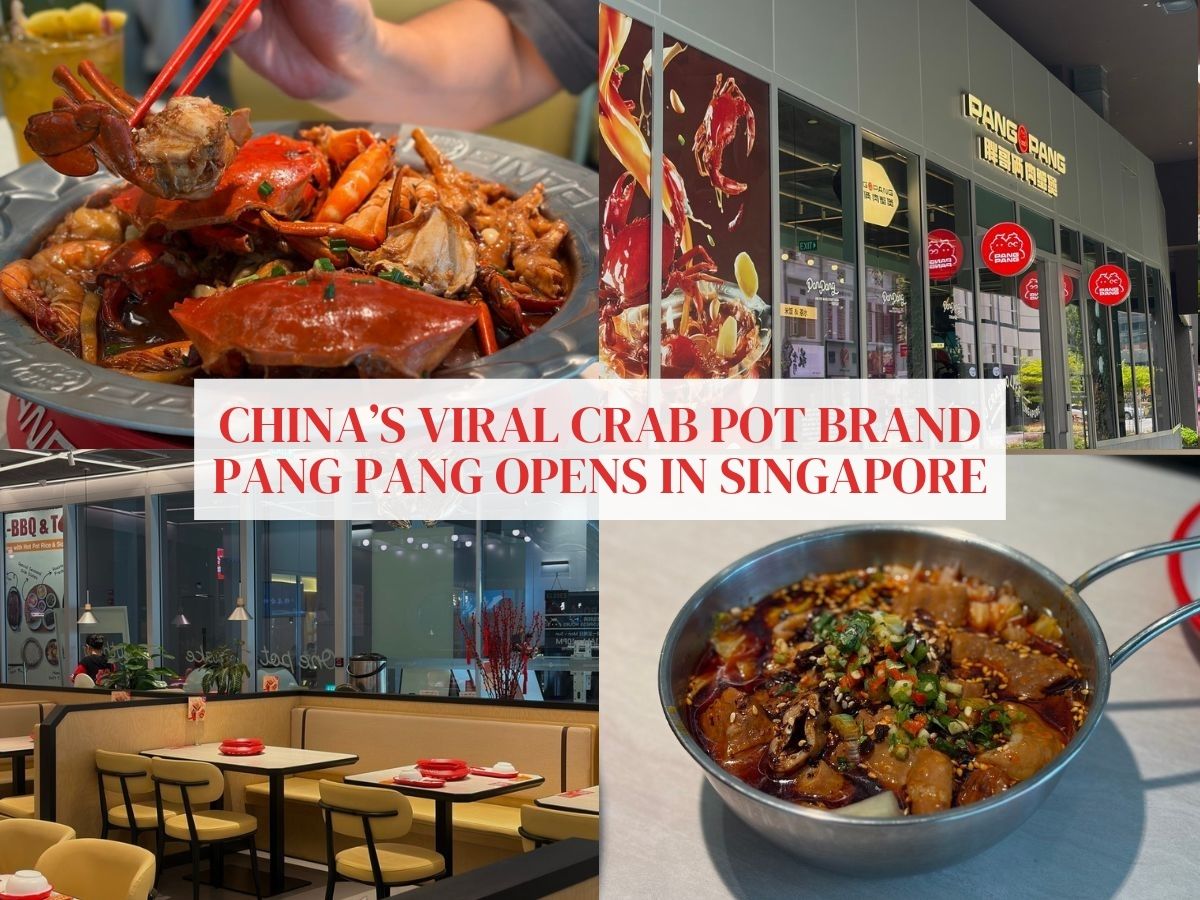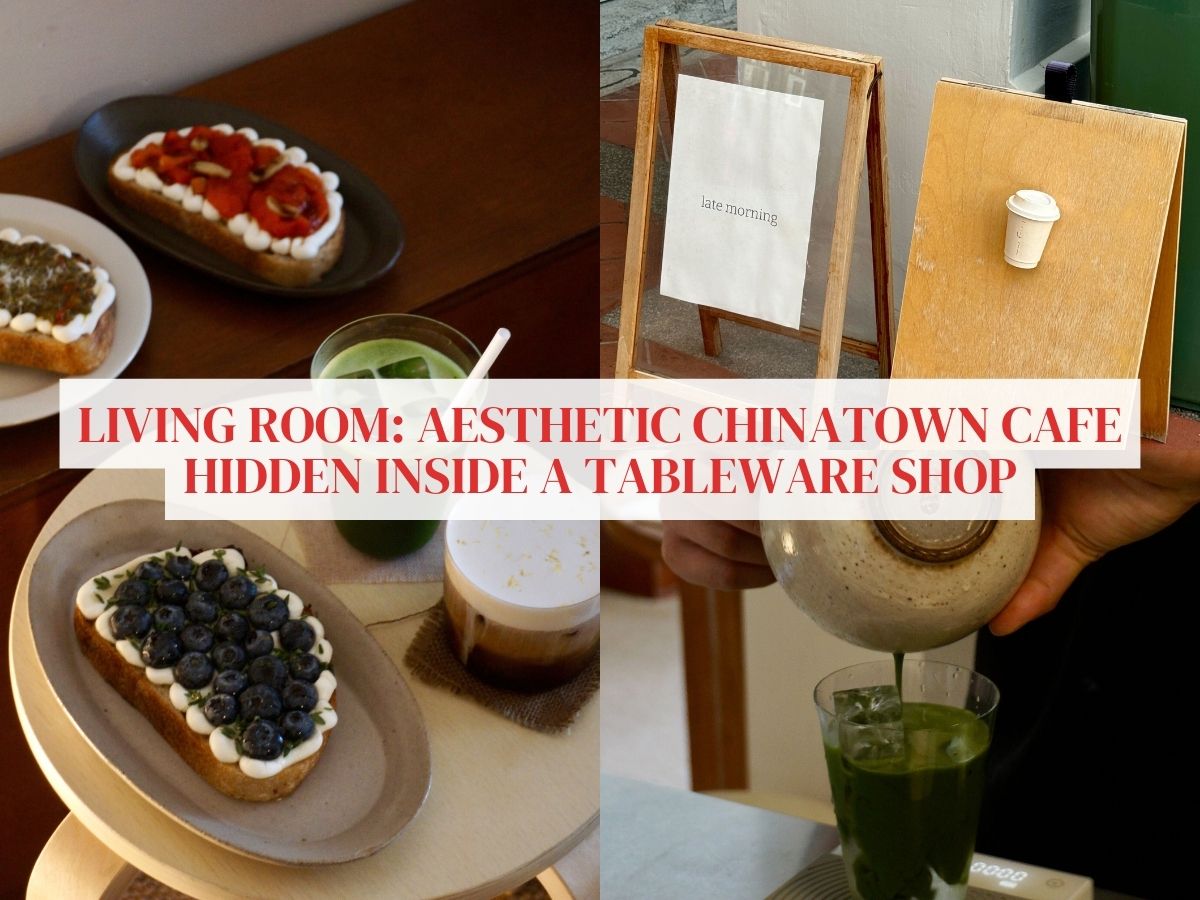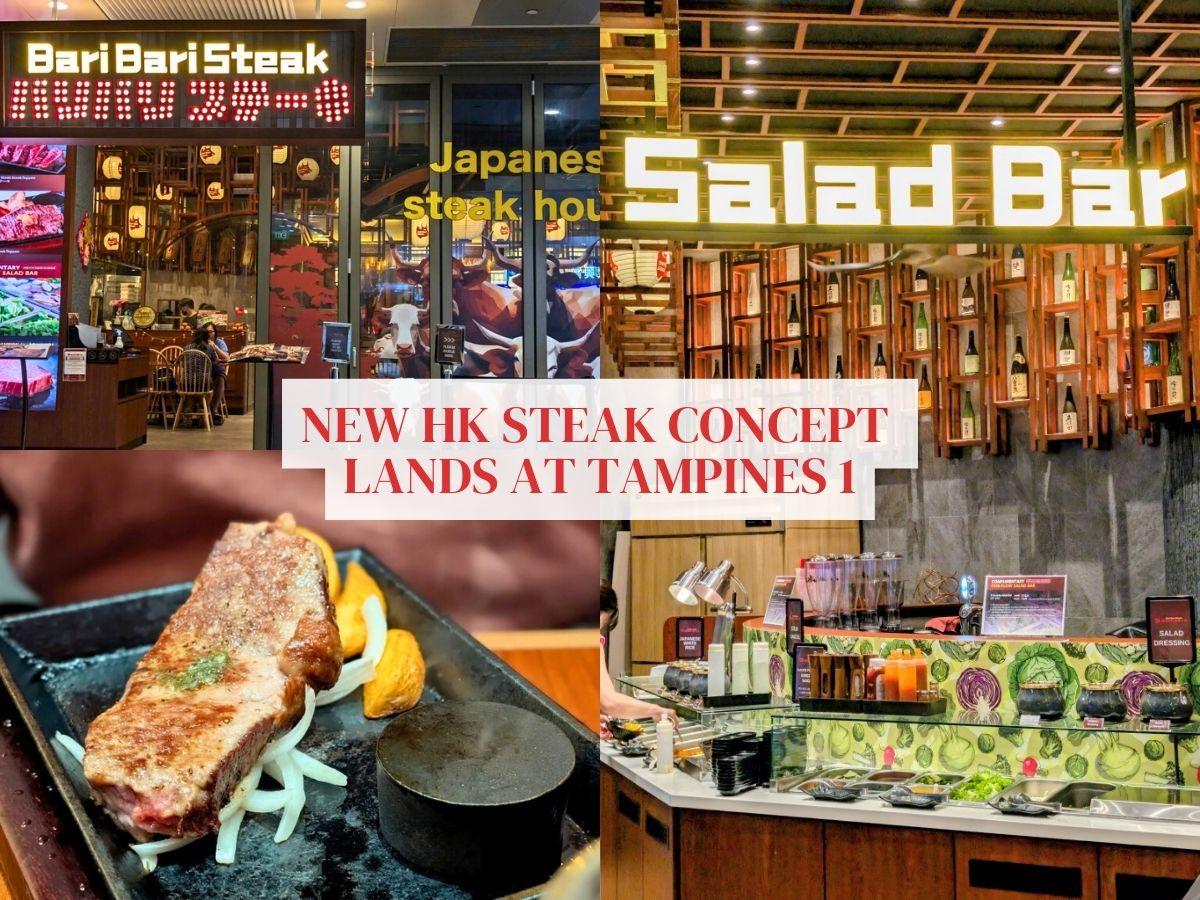Po Restaurant at The Warehouse Hotel launches first menu refresh
Let’s be real: Singapore’s relationship with Nanyang cuisine is as rich as it is layered — a tapestry of Peranakan, Chinese, Malay, Indian, and Eurasian influences that have shaped the nation’s palate over generations.
And it’s this spirit that Po Restaurant at The Warehouse Hotel seeks to honour.
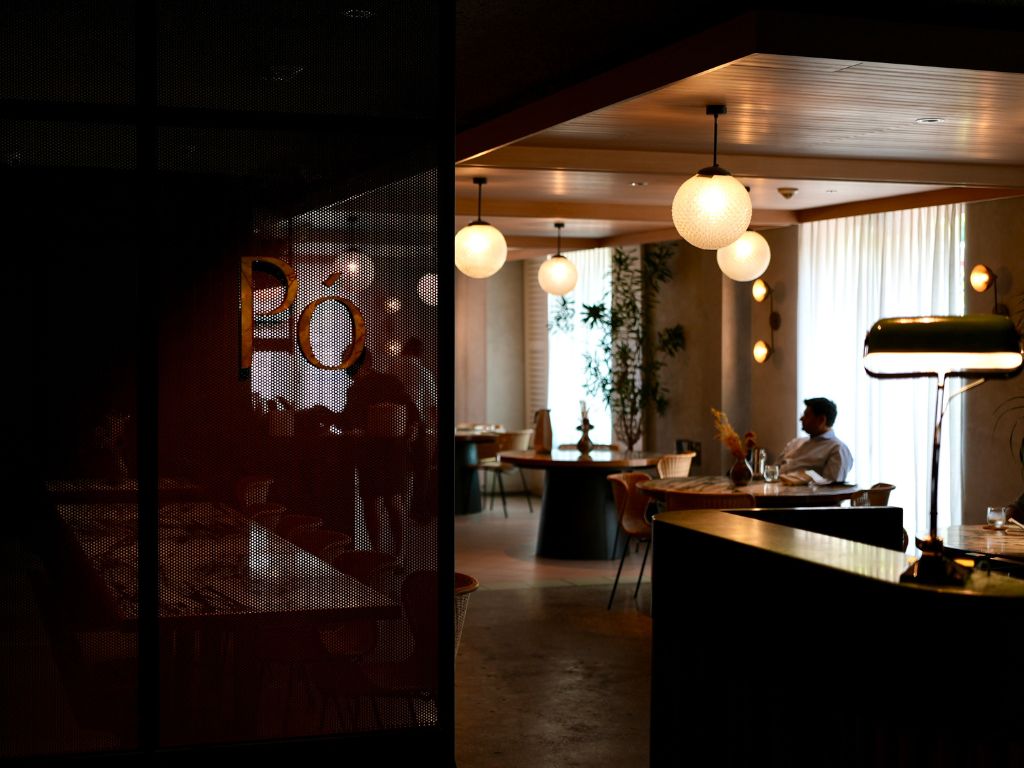
First opened in 2017, Po has carved a name for itself as The Warehouse Hotel’s one-and-only dining spot.
It’s known for sprucing up heritage recipes with a modern lift, while preserving comforting flavours that feel innately familiar to those of us who grew up eating Grandma’s food.
Even its name is a cheeky wink to “Popo” — a fictitious, sassy Chinese grandmother with a cigarette in hand and wisdom up her sleeve — and to the restaurant’s iconic popiah, served deconstructed so diners can re-live the joy of rolling it themselves.
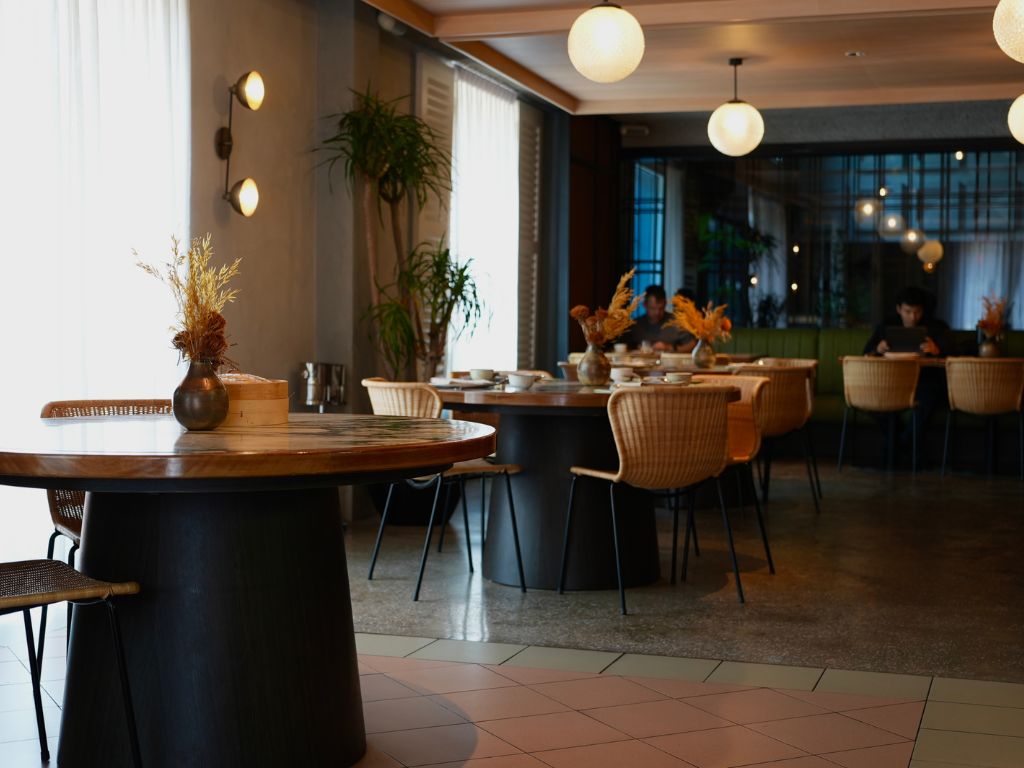
This October marks a new chapter for Po, with the introduction of its first-ever menu revamp since the restaurant’s inception in 2017.
At the helm is head chef Desmond Yong, whose culinary journey stretches from humble hawker settings to fine dining, including his time leading the kitchen at Singapore institution Rempapa.
Refreshed approach or no, the new menu still stays true to Po’s mission of reimagining Nanyang cuisine — weaving together sweet, savoury, spicy, and tangy notes with modern flair, all while rooted in age-old techniques.
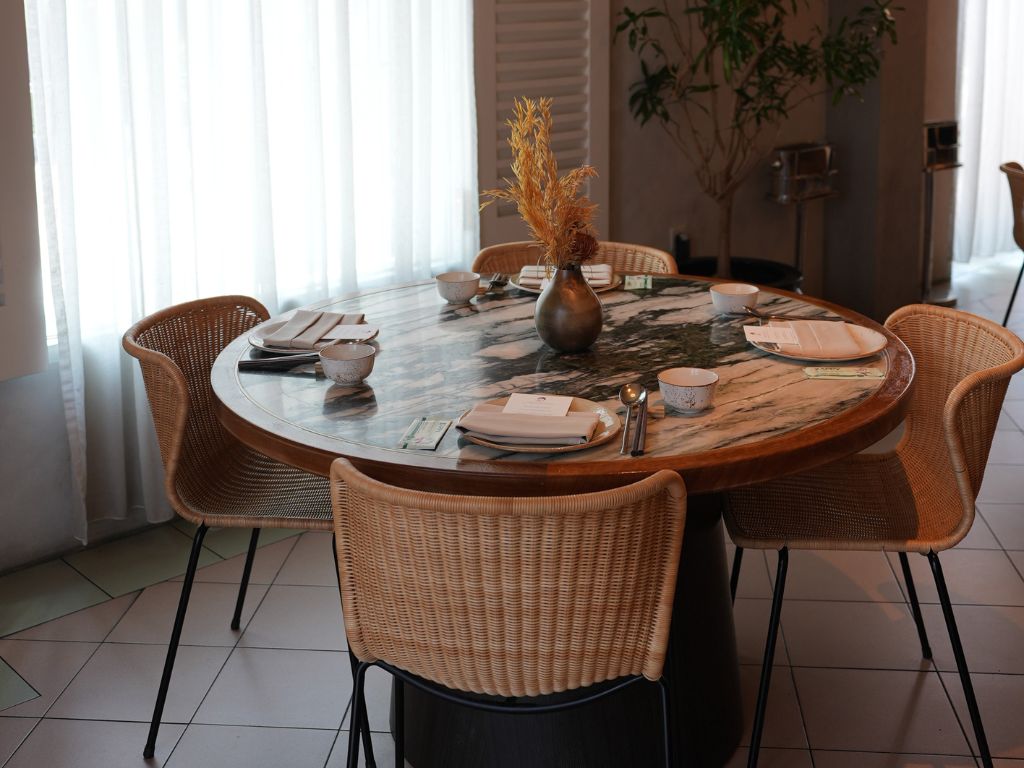
Likewise, the space at Po reflects this ethos — understated, elegant, and timeless.
Marble-topped tables, curved rattan chairs, and the warm glow of ambient lighting come together to build an atmosphere that is intimate, yet sophisticated. It’s a space designed for both convivial gatherings and casual business catch-ups.
All in all, we say: Po Restaurant is a thoughtful introduction to Singapore’s Nanyang cuisine — a spot well-worth bringing your international friends to!
What’s new at Po Restaurant
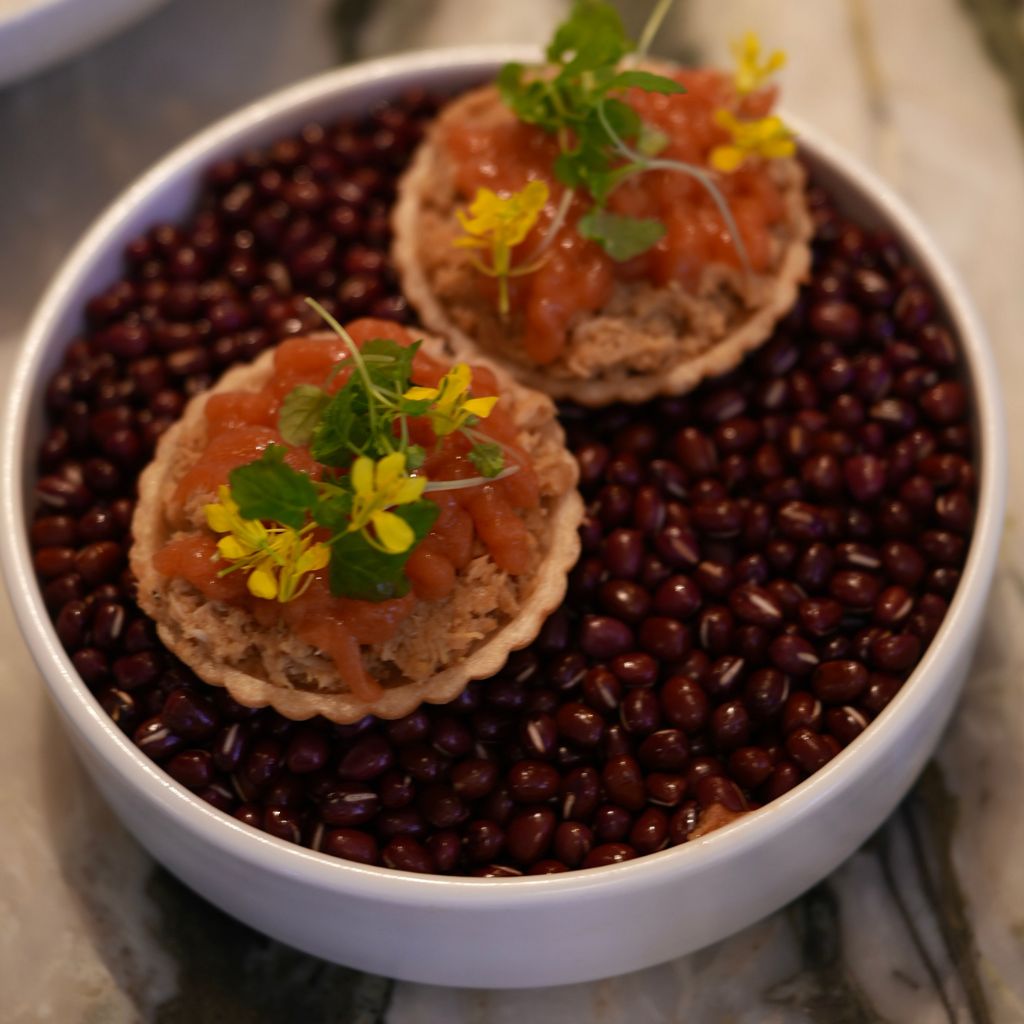
Perplexed and intrigued at the same time — that was us when Po’s bold, cheeky spin on the Eurasian classic, singgang serani (S$24 for two pieces), landed at our table.
Instead of the yellow-hued fish curry you might expect, the restaurant reinterprets the dish as a mackerel stew enriched with turmeric rempah and coconut milk, alongside tomato jelly, atop crunchy toasted rice shells.
Trust me on this: You won’t want to share this appetiser. Each bite was creamy, refreshingly tangy, and satisfyingly crisp, all at once, and sadly gone in a few nibbles.
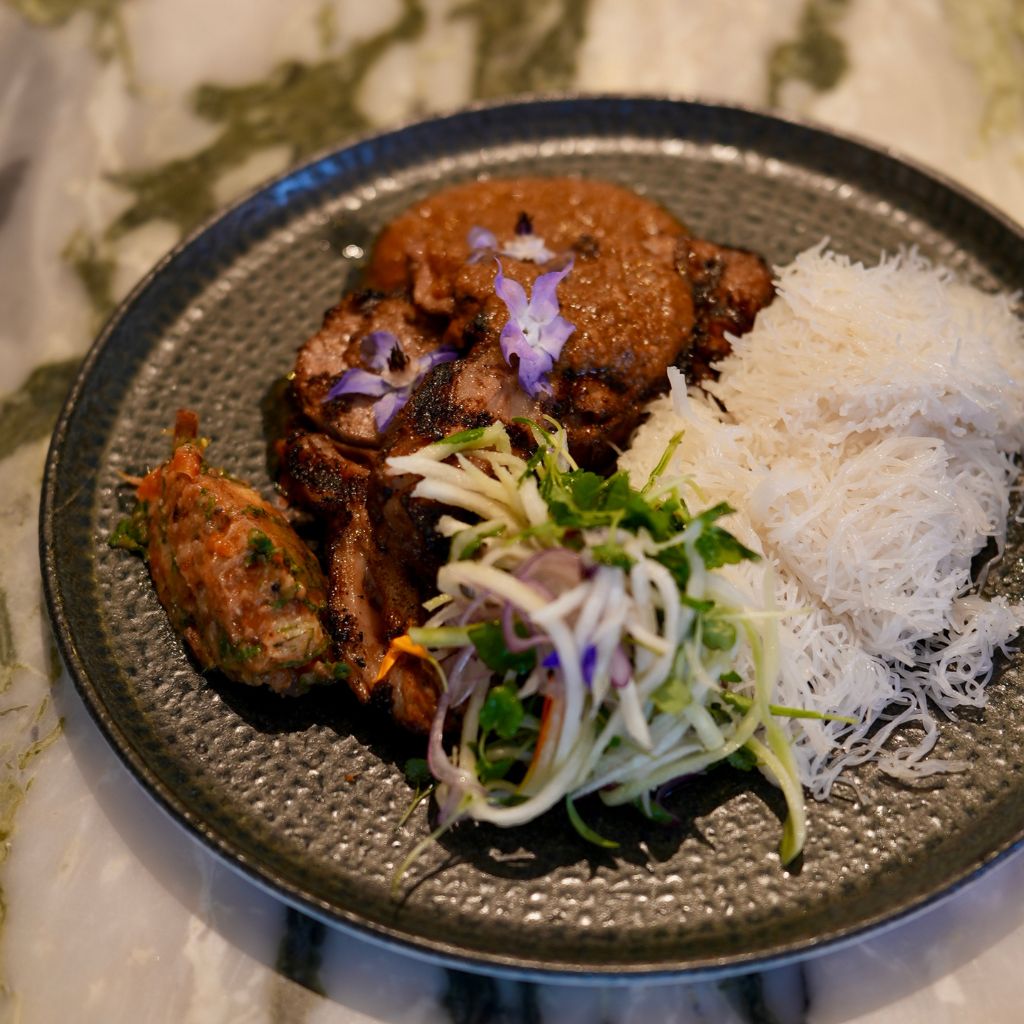
Another starter that had me going “mmm” was the kambing masak lemak chilli api ($28).
Po swaps the usual chicken for slow-braised lamb, cooked in a spiced coconut curry and paired with steamed rice vermicelli.
The spices hit all the right notes — fragrant, gently fiery, and deeply comforting. The lingering kick tames any trace of gaminess from the lamb, though there was barely any to begin with.
Needless to say, this quickly became an easy crowd-favourite at our table.
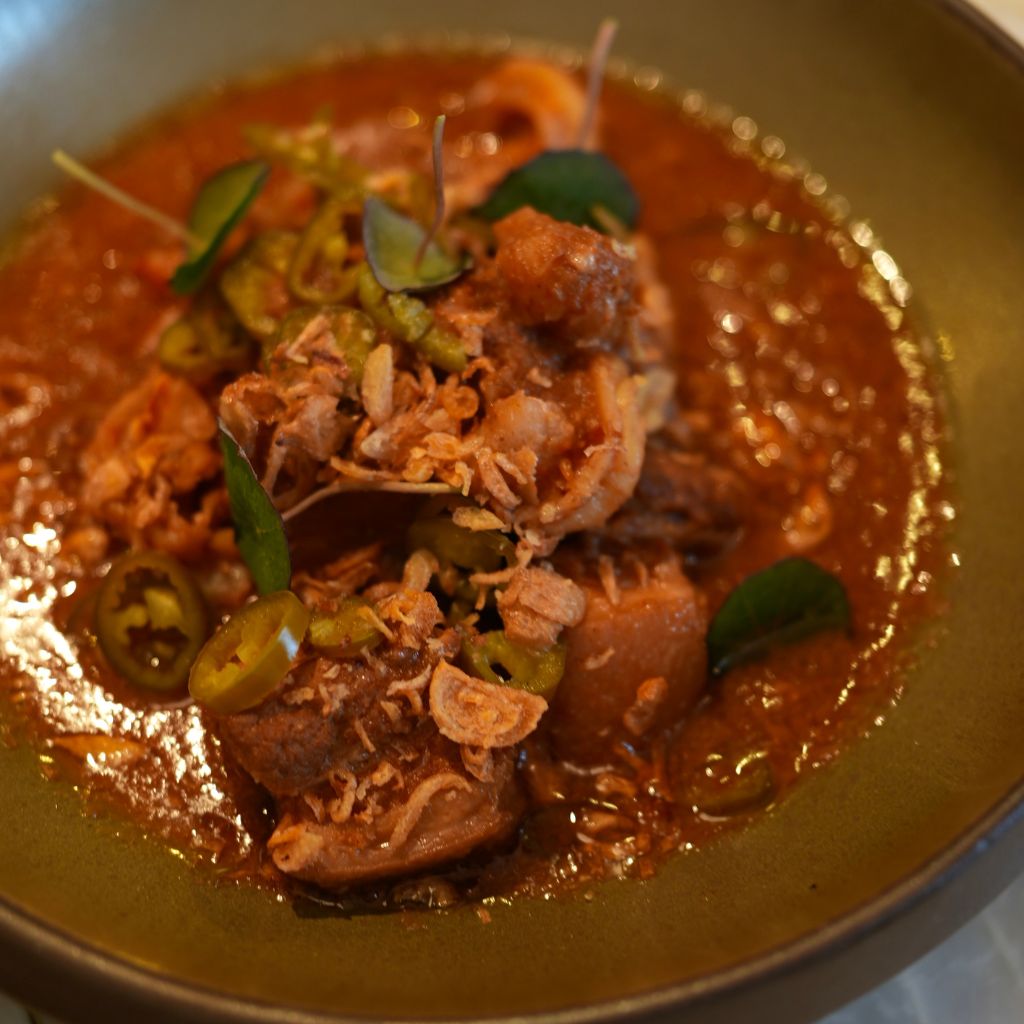
For larger, shareable plates, the babi tohay (S$32) made a lasting impression with its fall-apart-tender iberico pork.
Said to be a nearly extinct Peranakan dish, Po’s version is meticulously slow-braised in its housemade fermented krill paste before being wok-fried with tiger prawns.
The first mouth hits with a subtle tangy zing and fragrant garlicky notes. Honestly, this is one dish you need a bowl of rice for — that thick, luscious gravy is too good to leave behind.
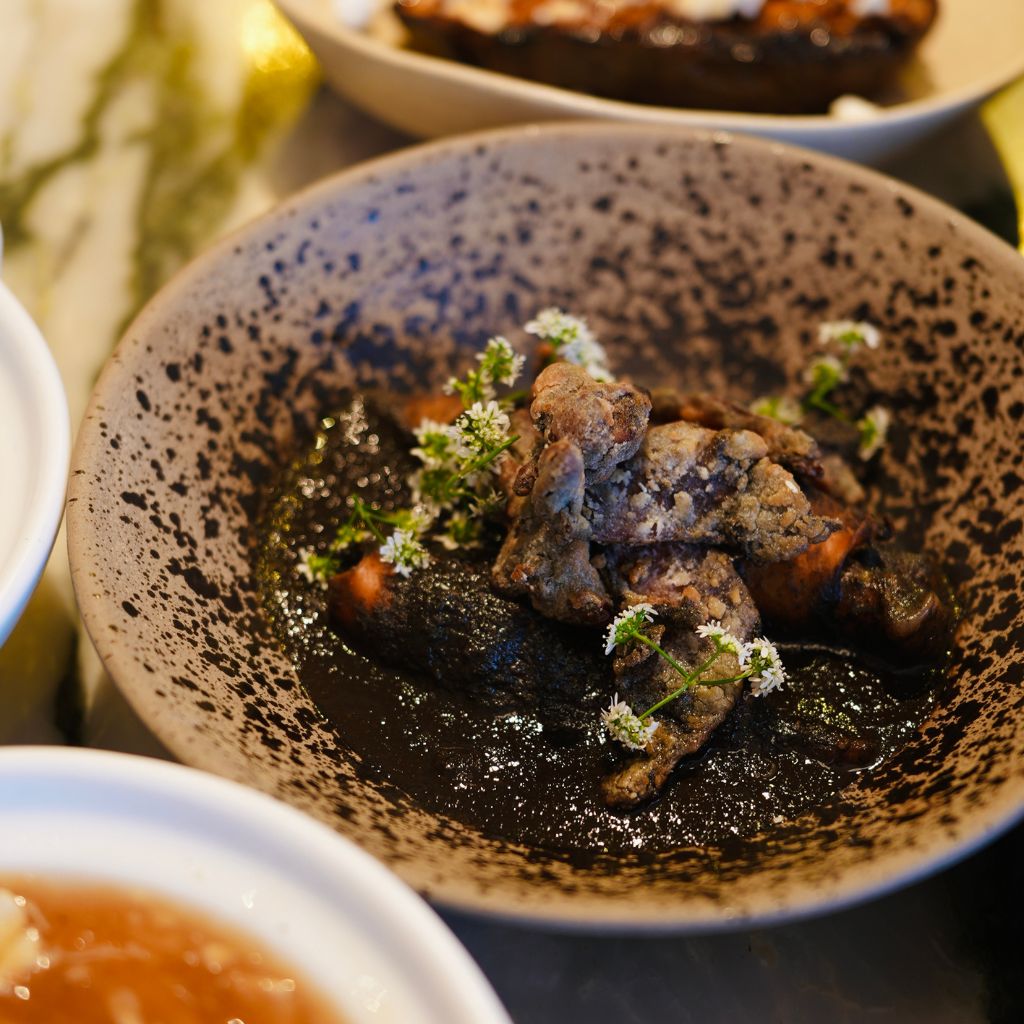
If seafood is more your thing, the sotong masak hitam (S$30) certainly catches the eye with its striking all-black look and elegant plating.
The dish features squid marinated in fragrant spice paste, cooked in its own ink until tender, and finished with crispy fried tentacles.
That said, it fell a little short for me — I’m all for bold, in-your-face spices, but the umami depth I was hoping for in this dish didn’t quite land.
On the plus side, though, the squid itself was beautifully cooked.
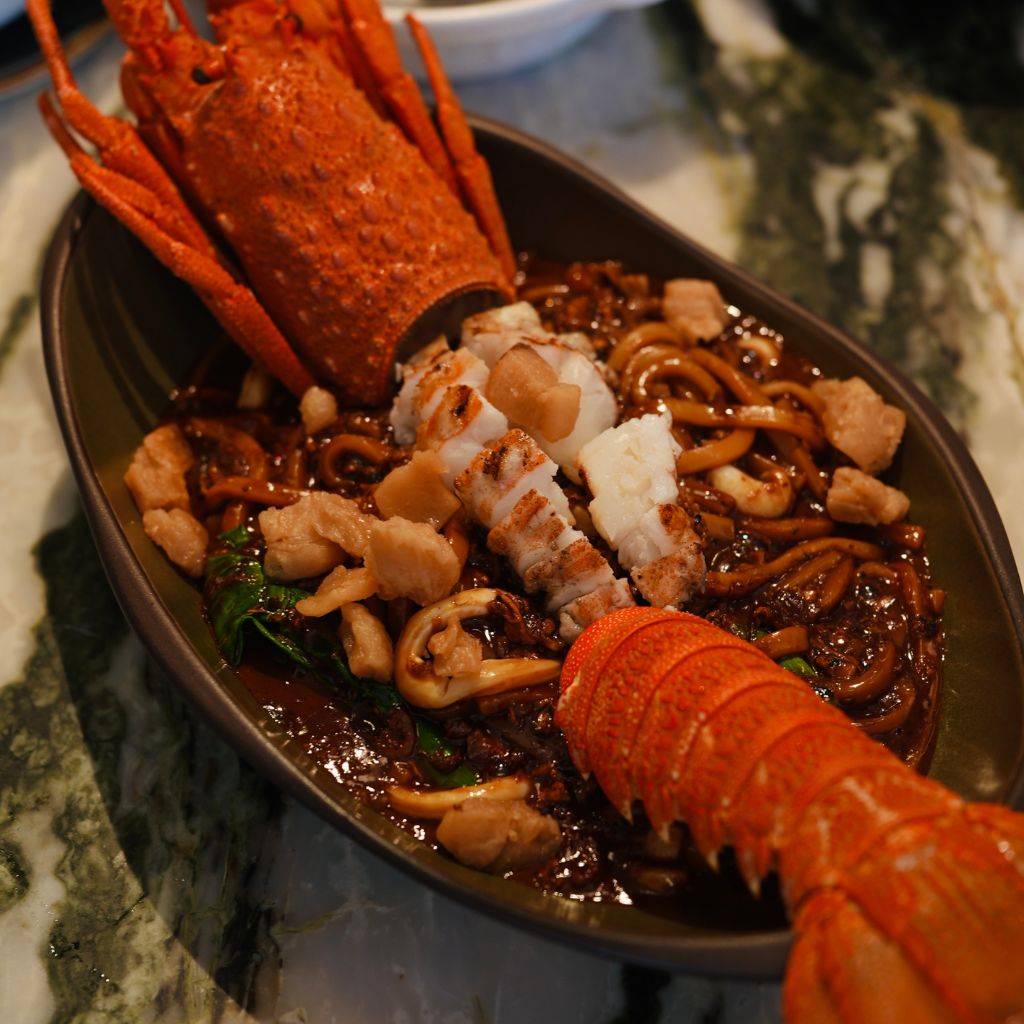
The showstopper of our meal? It has to be this plate of lobster mee (S$58) — a visual stunner, for sure.
Inspired by Kuala Lumpur’s dark Hokkien mee, Po’s rendition brings together udon braised in rich dark soy sauce with pork belly, squid, sakura shrimp, and cabbage. It’s then crowned with half of a fresh lobster and a dash of chunky, crispy pork lard.
As expected, the dish is imbued with fragrant wok-charred essence, delivering the savoury and deeply satisfying flavours you’d expect from a stellar Hokkien mee.
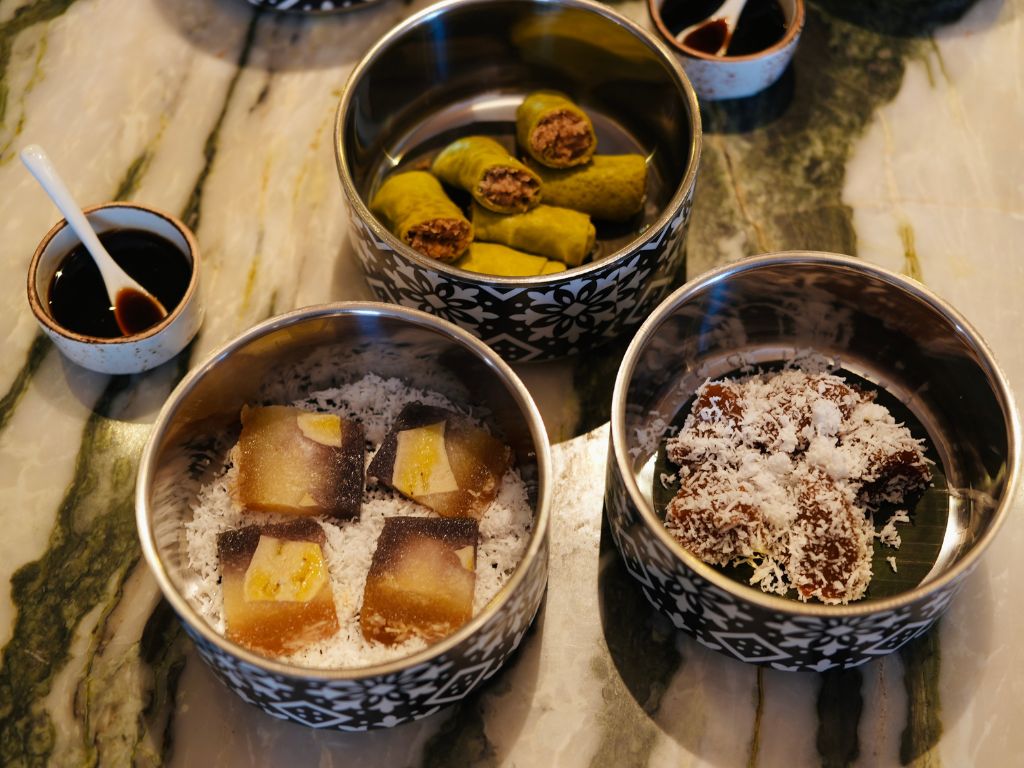
And of course, we couldn’t skip the kueh tingkat (S$22), which comes with three varieties of freshly made kueh — chosen, we hear, according to chef Desmond’s mood.
Served in a traditional three-tier tiffin, it’s a charming nod to the past, and a sweet way to end off our meal.
What makes it all the more special is that these recipes are handed down from chef Desmond’s mother. These kueh fill us with the same nostalgia and comfort as the ones we grew up with at home!
With attentive touches like this, Po Restaurant does well at capturing the soul of Singapore’s Nanyang cuisine, while keeping it approachable, even for those new to these flavours.
This was a hosted tasting.
For more ideas on what to eat, check out Michelin-starred Restaurant Jag’s new a la carte menu and KFC’s exclusive collaboration with Thailand’s beloved Butterbear.
Tues 7am - 10.30am, 12pm - 3pm, 6pm - 10pm
Wed 7am - 10.30am, 12pm - 3pm, 6pm - 10pm
Thurs 7am - 10.30am, 12pm - 3pm, 6pm - 10pm
Fri 7am - 10.30am, 12pm - 3pm, 6pm - 10pm
Sat 7am - 10.30am, 12pm - 3pm, 6pm - 10pm
Sun 7am - 10.30am, 12pm - 3pm, 6pm - 10pm
- ClarkeQuay
- Fort Canning
- Havelock
